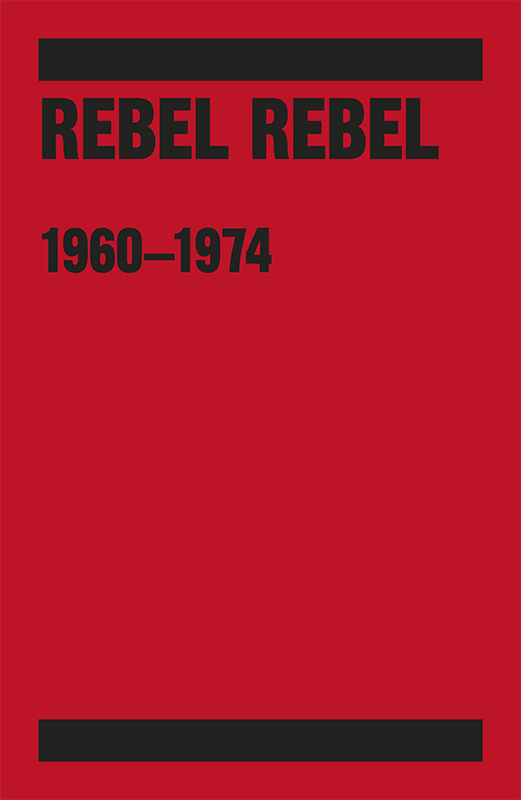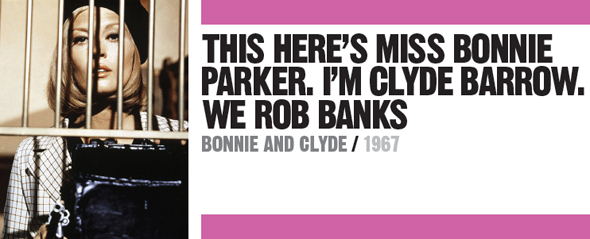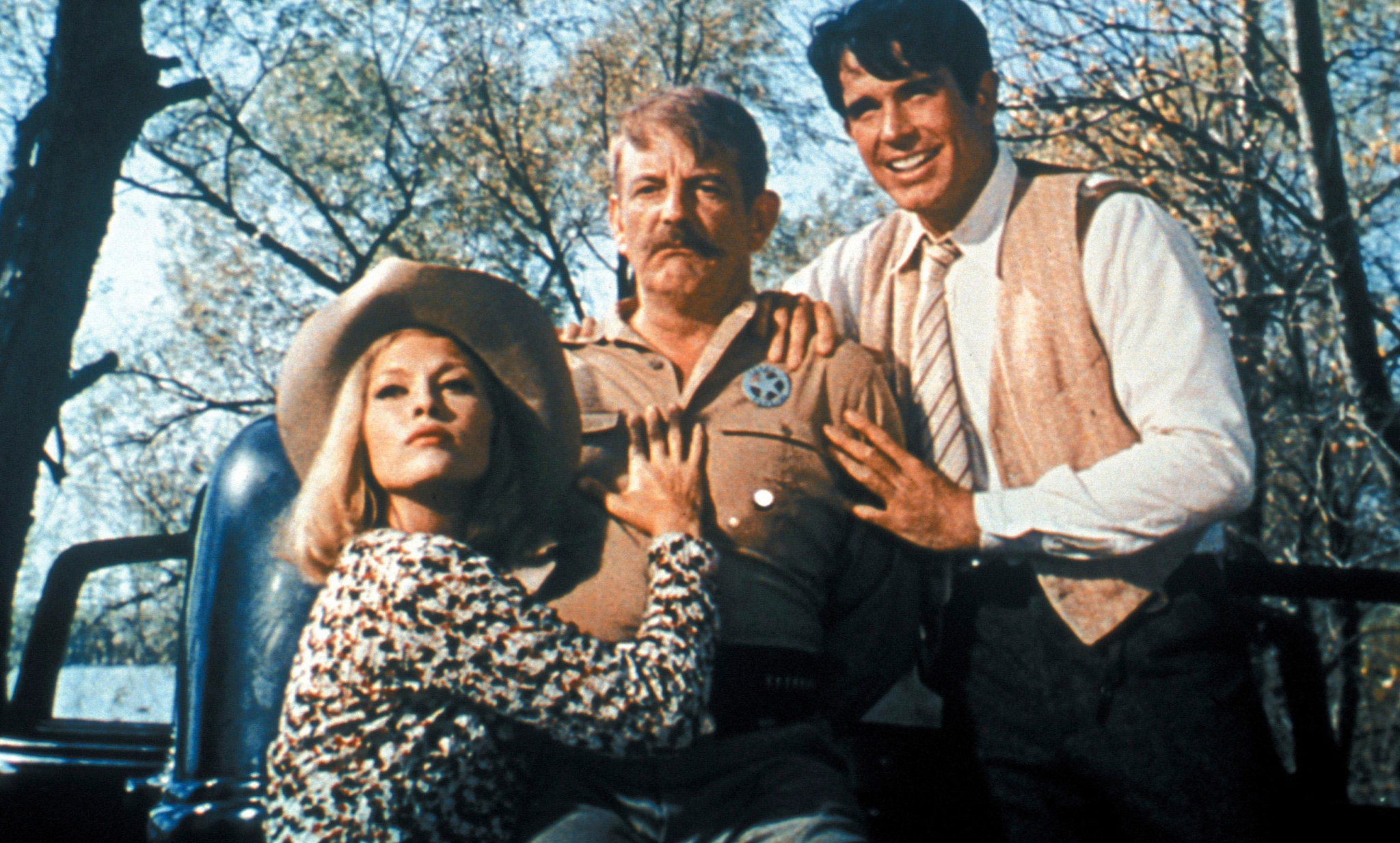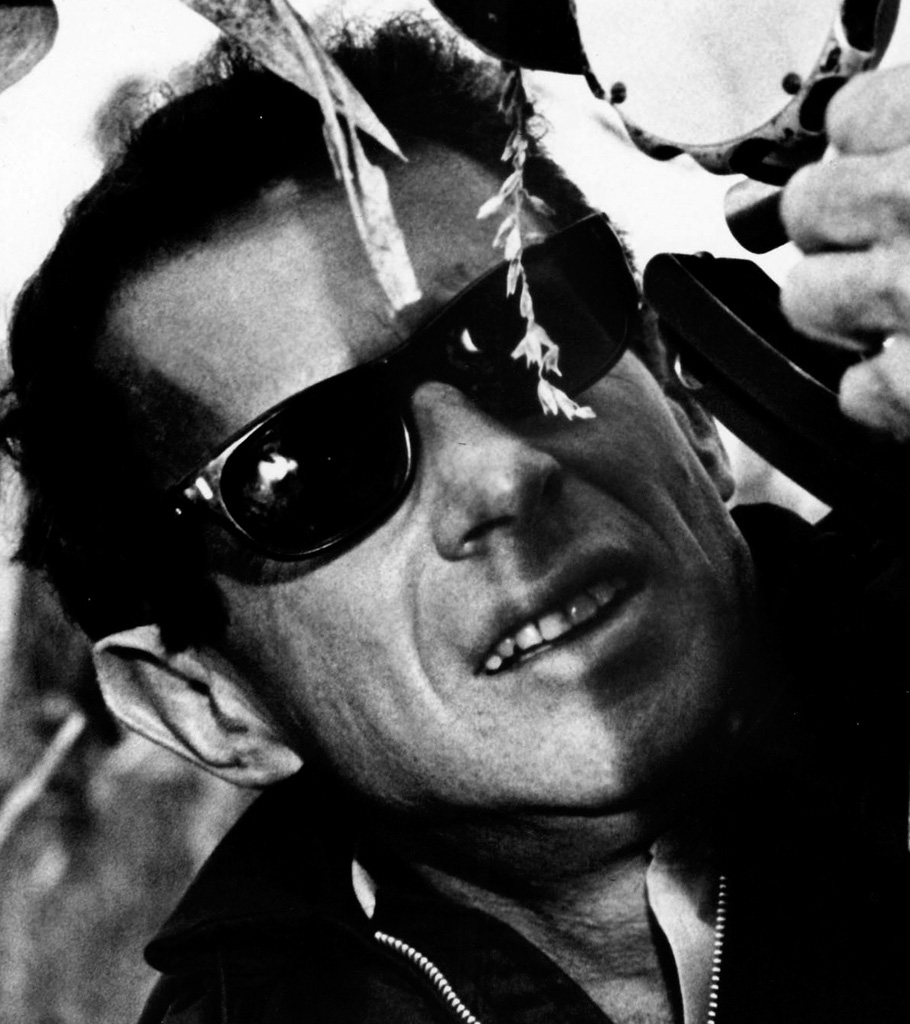The Movie Book (Big Ideas Simply Explained) (2016)


IN CONTEXT
GENRE
Crime thriller
DIRECTOR
Arthur Penn
WRITERS
David Newman, Robert Benton
STARS
Warren Beatty, Faye Dunaway, Gene Hackman
BEFORE
1965 Arthur Penn and Warren Beatty team up for the first time with the Chicago-set thriller Mickey One.
AFTER
1970 Faye Dunaway stars opposite Dustin Hoffman in Penn’s Western Little Big Man.
1976 In Penn’s The Missouri Breaks, Marlon Brando stars as a ruthless lawman on the trail of a gang of horse rustlers led by Jack Nicholson.
Bonnie and Clyde marked the arrival of a new generation of American directors whose freer style of filmmaking was a departure from the old studio conventions of classical Hollywood. Expensive productions such as Cleopatra had flopped, bankrupting the old Hollywood studio system, which loosened the studios’ grip on production. Desperate financial times meant greater creative freedom, and everything about Bonnie and Clyde, from the movie’s frequent use of unsettling close-ups to its jagged editing style, was designed to upset the status quo of traditional filmmaking.
Arthur Penn’s story of a young couple on a bank-robbing rampage, based on the real-life crime spree of Clyde Barrow and Bonnie Parker between 1932 and 1934, exhibits a more realistic violence than had previously been seen on screen. It also treats its outlaw protagonists sympathetically, giving them an innocence and a naivety that represented a new way of telling stories about bad people.
“They’ll go down together / They’ll bury them side by side / To a few, it’ll be grief / To the law, a relief / But it’s death for Bonnie and Clyde.”
Bonnie Parker / The Ballad of Bonnie and Clyde
Tabloid stars
The movie frames its characters as tabloid newspaper stars, who are first glamorized and then vilified. As each of their escapades is reported in the next day’s press, Bonnie (Faye Dunaway), Clyde (Warren Beatty), and even Clyde’s brother Buck (Gene Hackman) see how the papers sensationalize the facts and exaggerate the crimes.
At first, Clyde laughs off the attention, and he and Bonnie take playful, gun-toting photos of themselves for the press, playing along with the media game and enjoying their celebrity. But as the law closes in, and the pair’s situation becomes increasingly desperate, the barrage of lies told about them in the newspapers begins to wear Clyde down, most noticeably when an article falsely accuses him of robbing the Grand Prairie National Bank—which enrages him so much that he promises to actually do it.
The relentless attention of the media ultimately robs the two thieves of their sense of self, leaving them powerless to present their true selves to the world. Only as the movie nears its bloody end are they given a reprieve of sorts, when a short, charming poem Bonnie has written, telling of her pride in knowing a decent man like Clyde, is published in a newspaper. Their side of the story is told, just once.
Like other movies of the time, Bonnie and Clyde makes it hard for the viewer not to root for its amoral protagonists, sympathizing more with their media manipulation than the victims of their robberies.

Bonnie and Clyde pose for a photo with their hostage, Captain Frank Hamer (Denver Pyle). In real life, Hamer did not meet either of them until the day his posse killed them.
ARTHUR PENN Director

Arthur Penn discovered an interest in theater when stationed in Britain during World War II. His first movie was The Left Handed Gun, a Western starring Paul Newman, but his first major success came with The Miracle Worker, an adaptation of a play about deaf and blind activist Helen Keller that he had previously directed on stage. Penn’s most prolific years came in the late 1960s. He died of heart failure in 2010, on his 88th birthday.
Key movies
1966 The Chase
1967 Bonnie and Clyde
1970 Little Big Man
What else to watch: The Defiant Ones (1958) ✵ À bout de souffle (1960) ✵ Easy Rider (1969) ✵ Badlands (1973) ✵ Taxi Driver (1976) ✵ True Romance (1993) ✵ Natural Born Killers (1994)